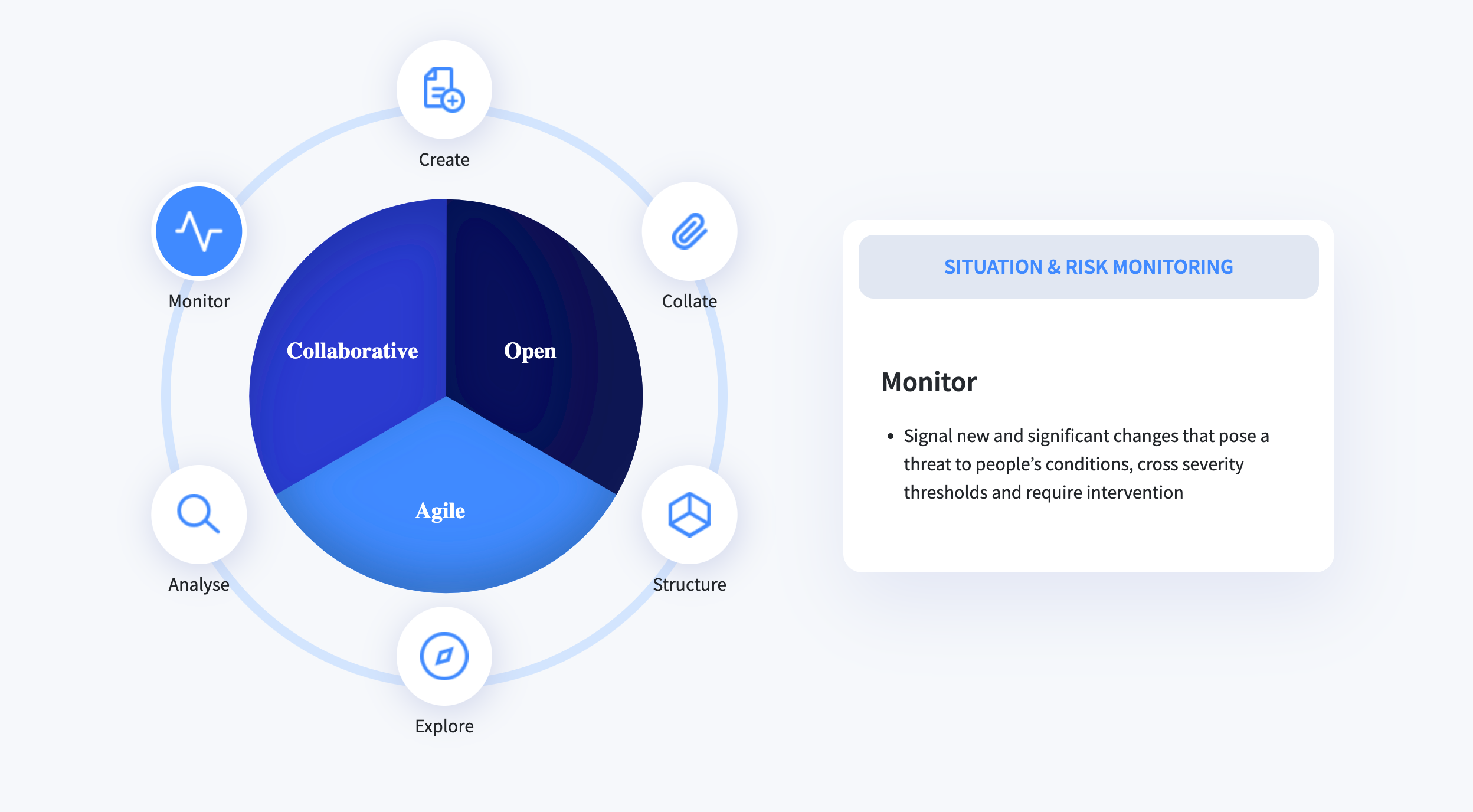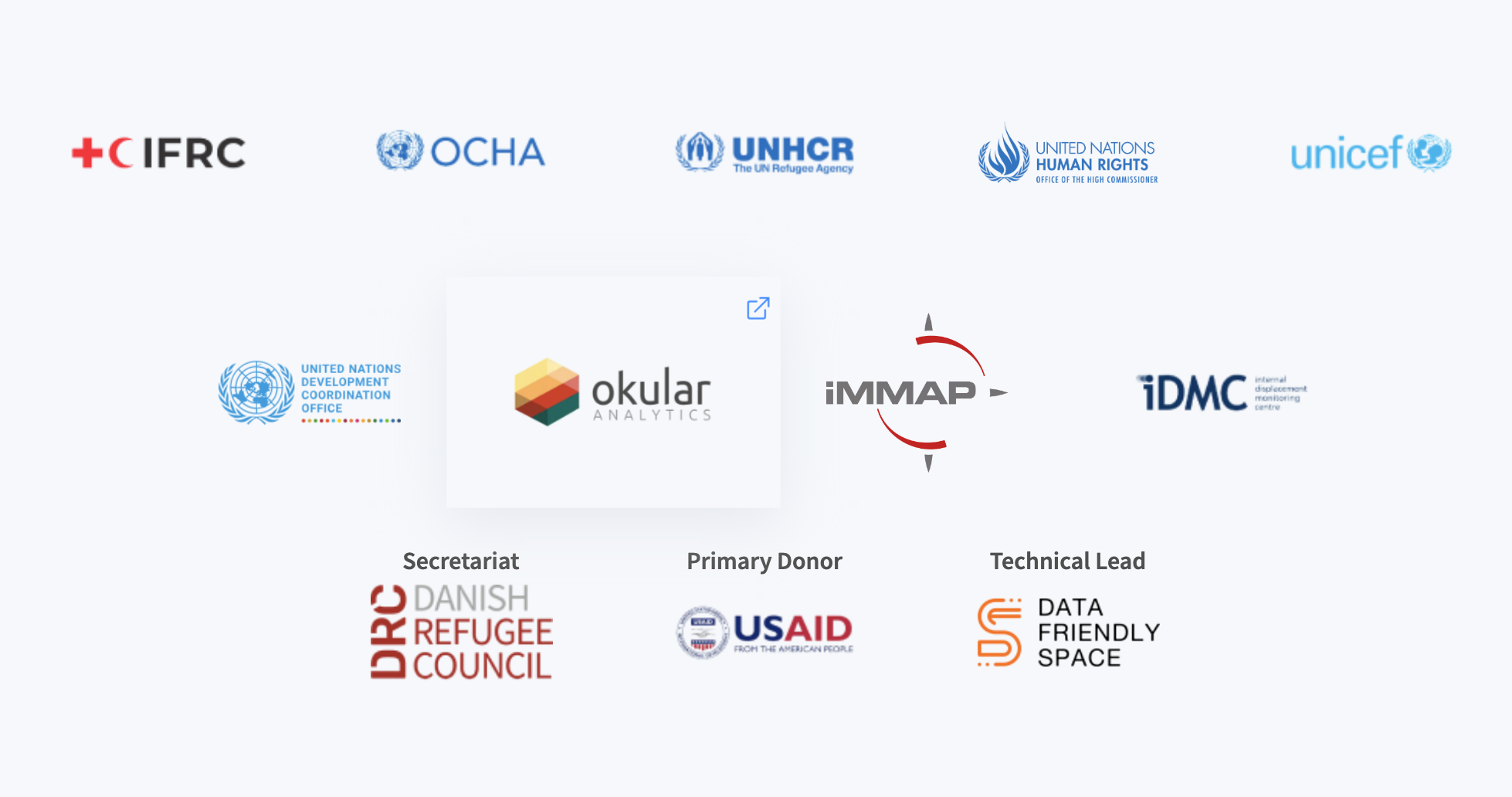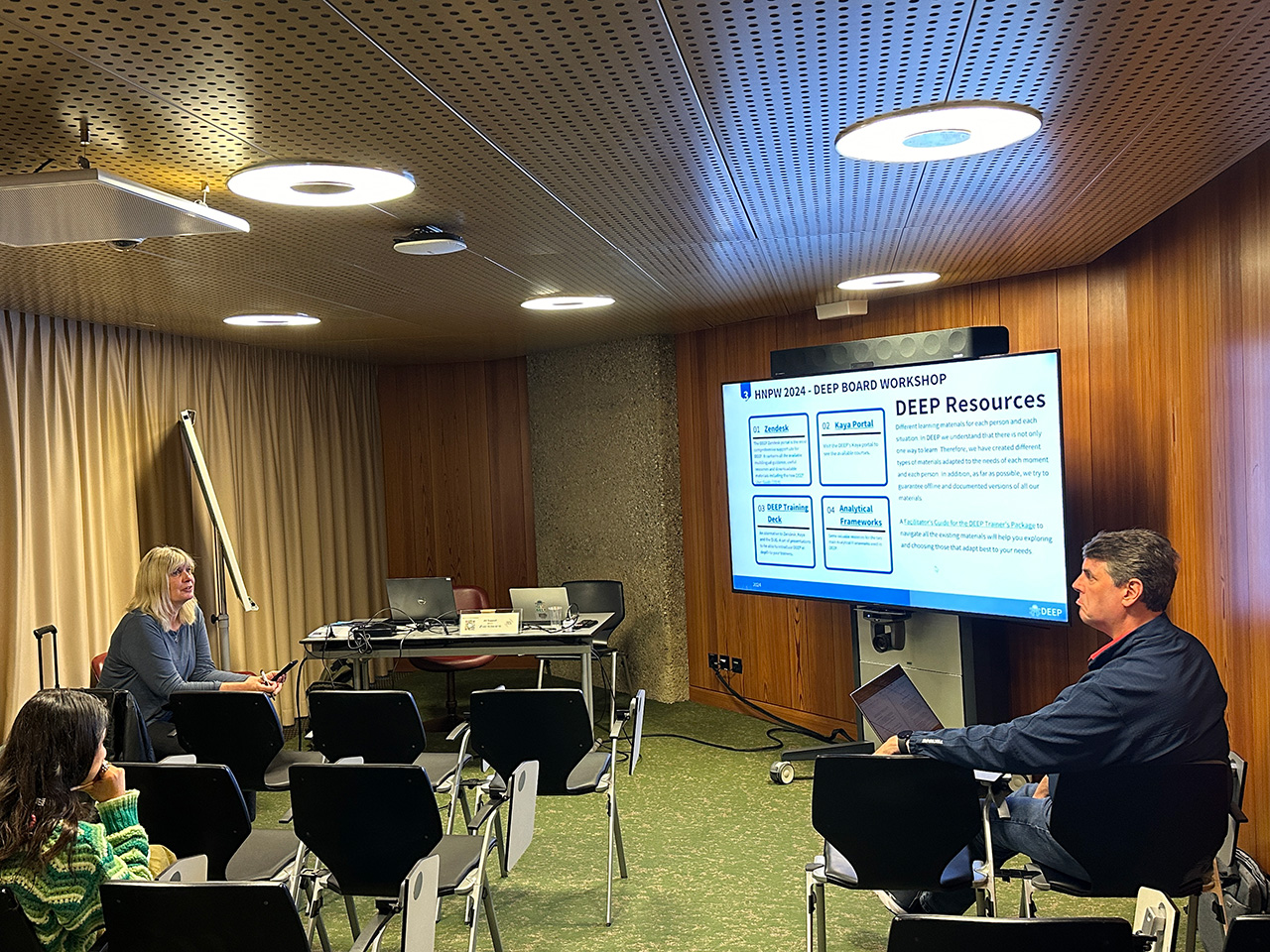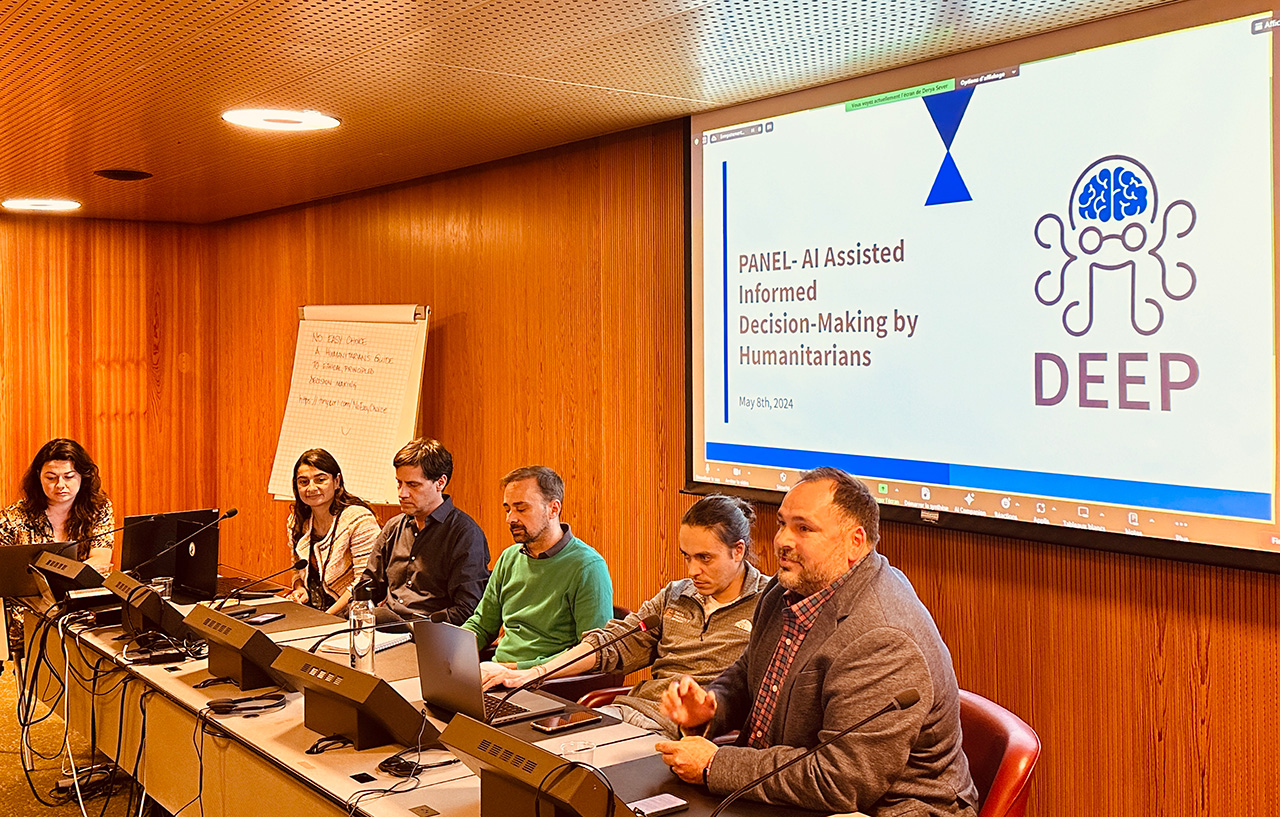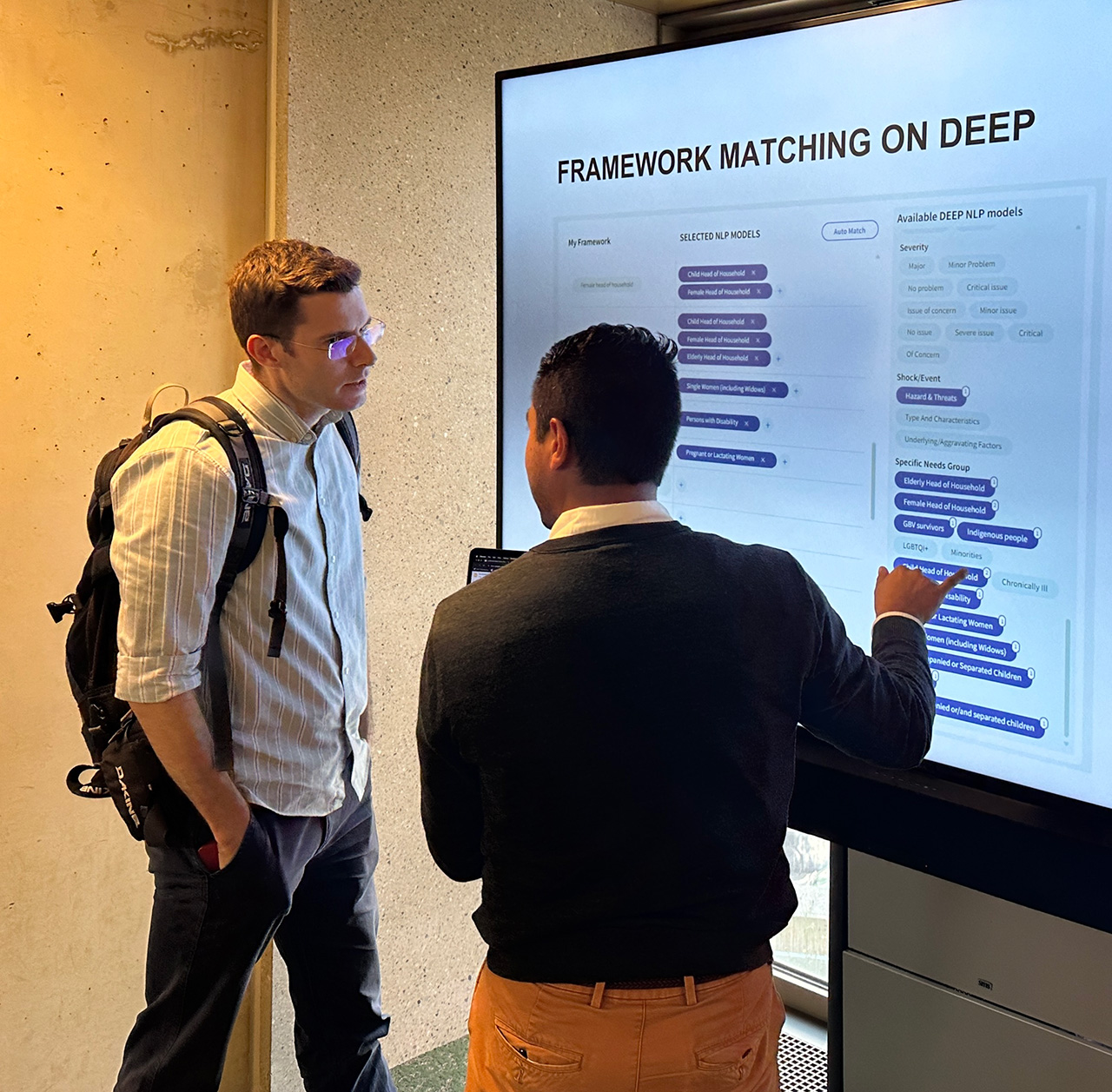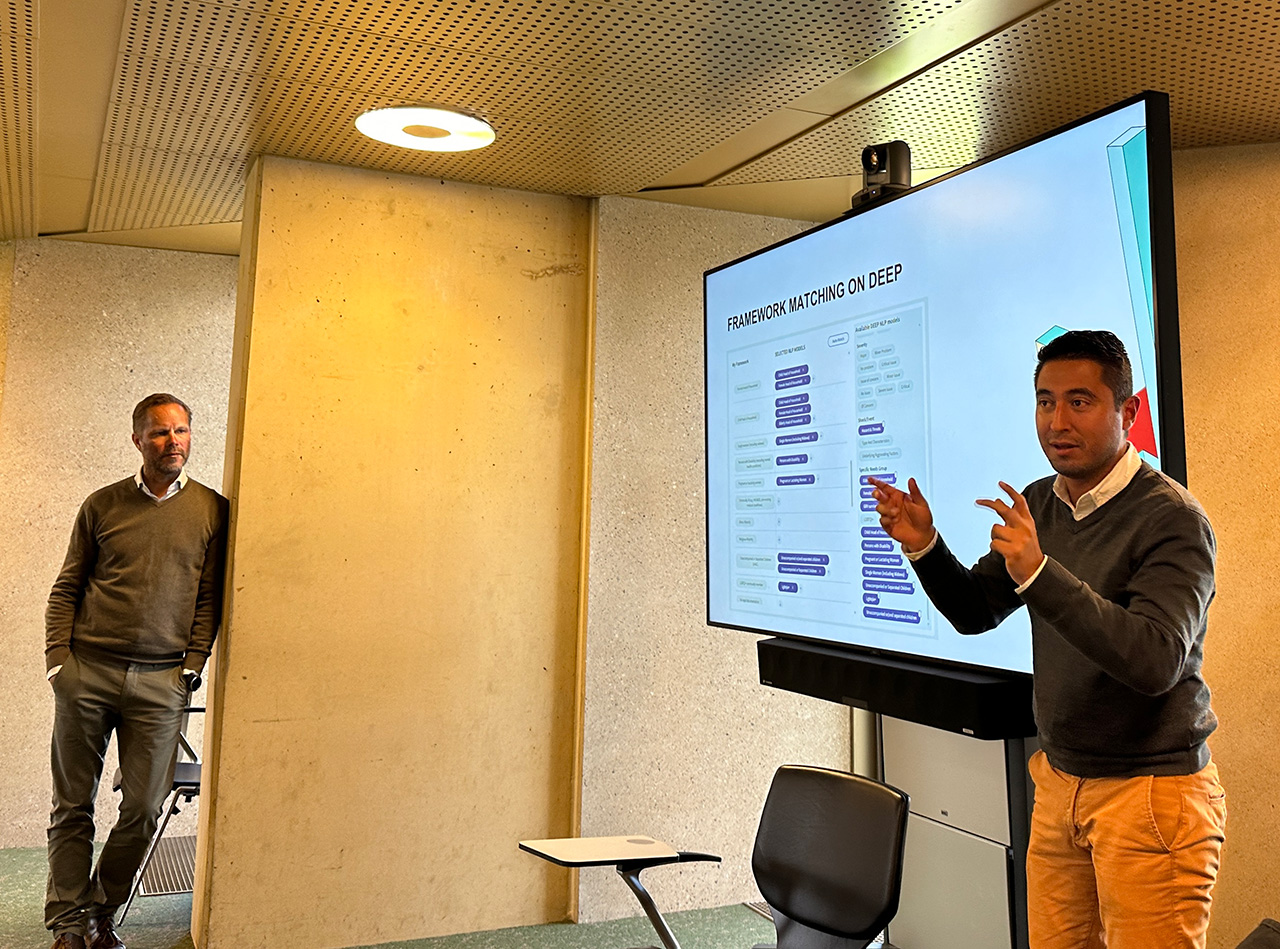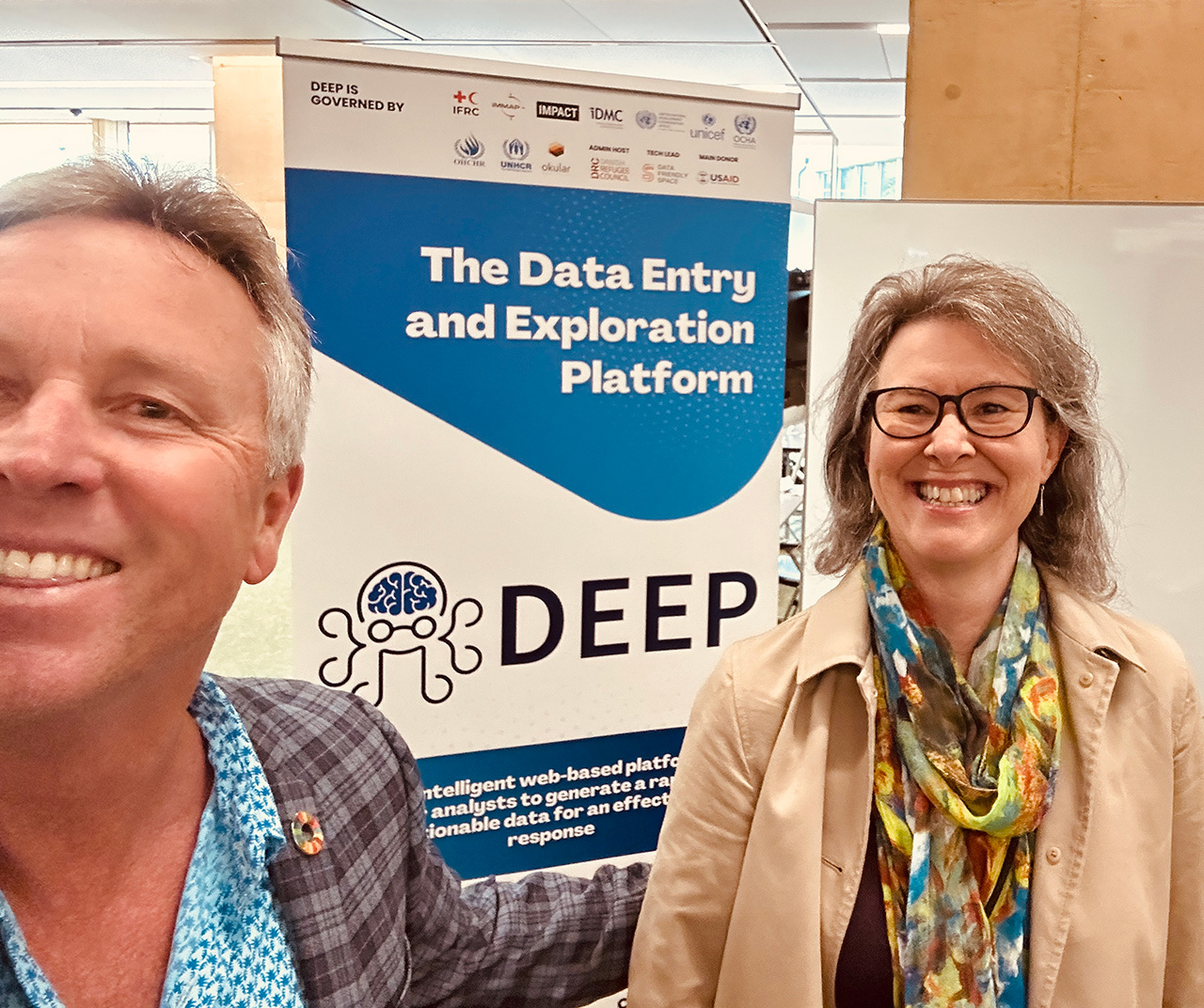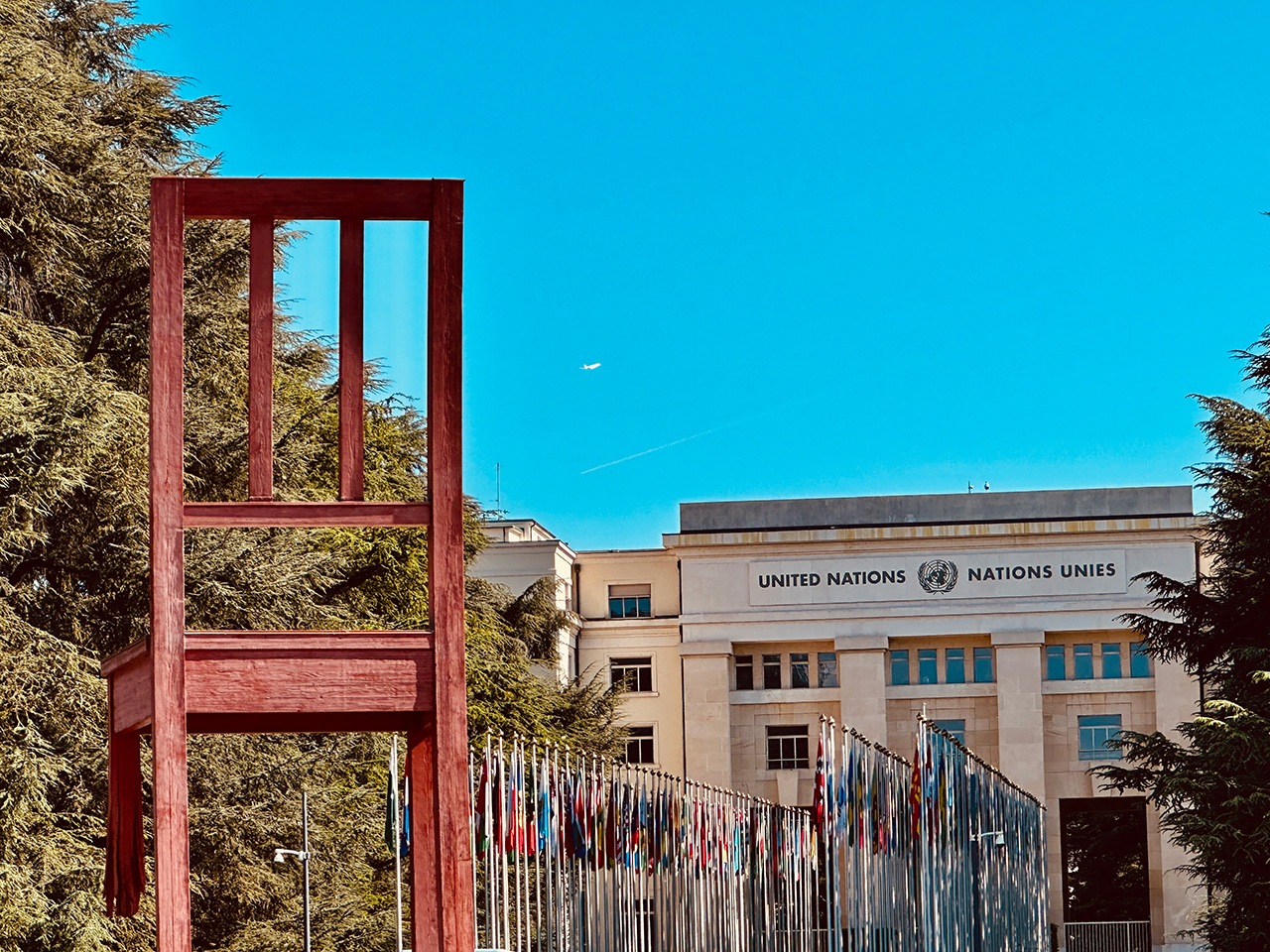Special Distinction for Humanitarian Impact | 2024
The Data Entry and Exploration Platform (DEEP)
Denmark
Joel Myhre
Prize Announcement
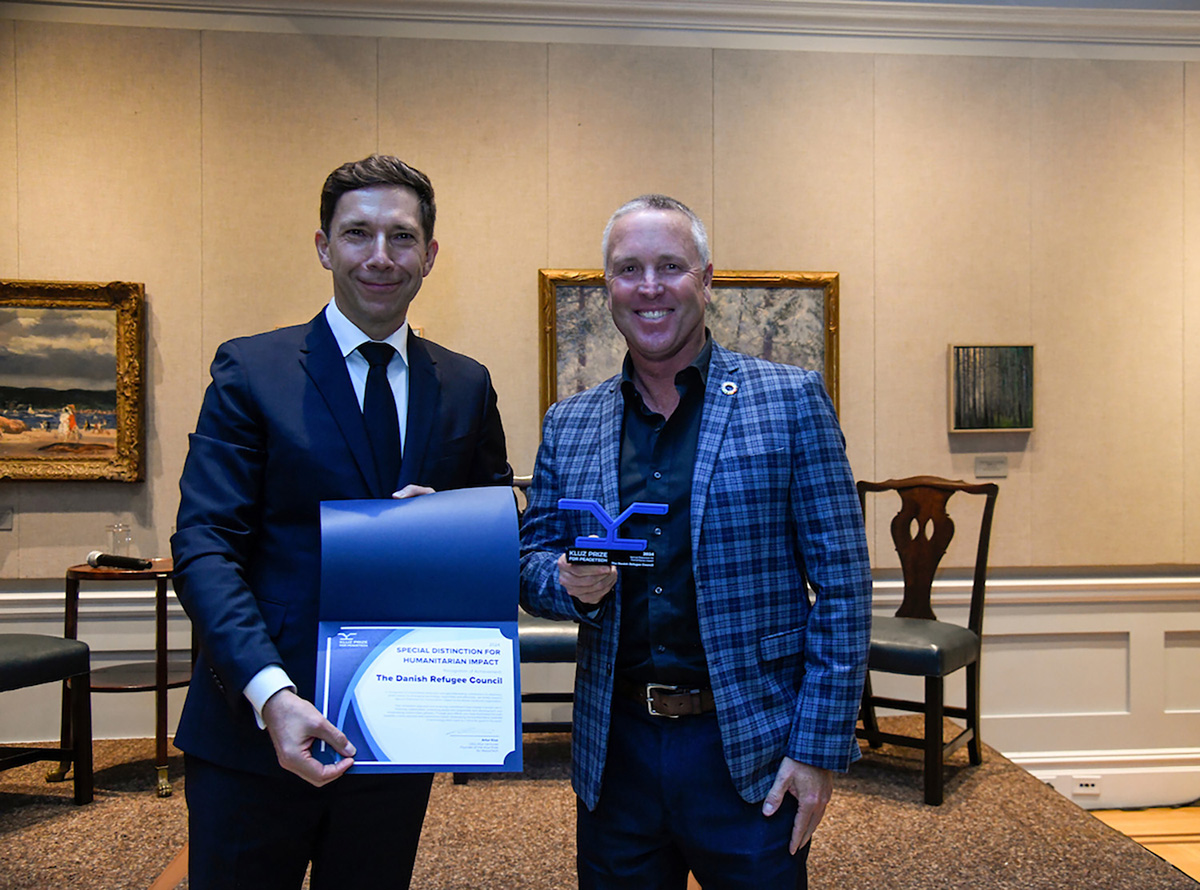
Impact
What is the potential of your work for widespread impact? How do you meaningfully improve the lives of people?
For over 8 years, DEEP has played a pivotal role contributing to strategic planning through the UN’s Humanitarian Program Cycle (HPC) and supporting secondary data analysis for Humanitarian Needs Overviews (HNO) in multiple countries in Africa, Latin America, and the Asia Pacific regions. DEEP has also been a foundational tool for recent, large-scale humanitarian response operations in support of the UN’s Disaster Assessment and Coordination Assessment and Analysis cell, the IFRC, and the Caribbean Disaster Emergency Management Agency (CDEMA). Specific sudden onset crises where DEEP has garnered acclaim include: the Türkiye Earthquake (DEEP surge), Sudan (iMMAP), Libya (IFRC), and Gaza (UNOCHA).

Metrics
- 8,000Registered users
- 90Organizations
- 8Countries
Source: Provided in the interview above
"On behalf of our global DEEP team and the Danish Refugee Council (home of the DEEP Secretariat), we welcome the special distinction via the Kluz Prize to showcase how our DEEP efforts leverage open-source and NLP-enabled humanitarian technology to advance PeaceTech globally via the UN’s Protection Cluster."
Joel Myhre – DEEP Project Manager, Global Protection Unit
The Data Entry and Exploration Platform (DEEP) in action
